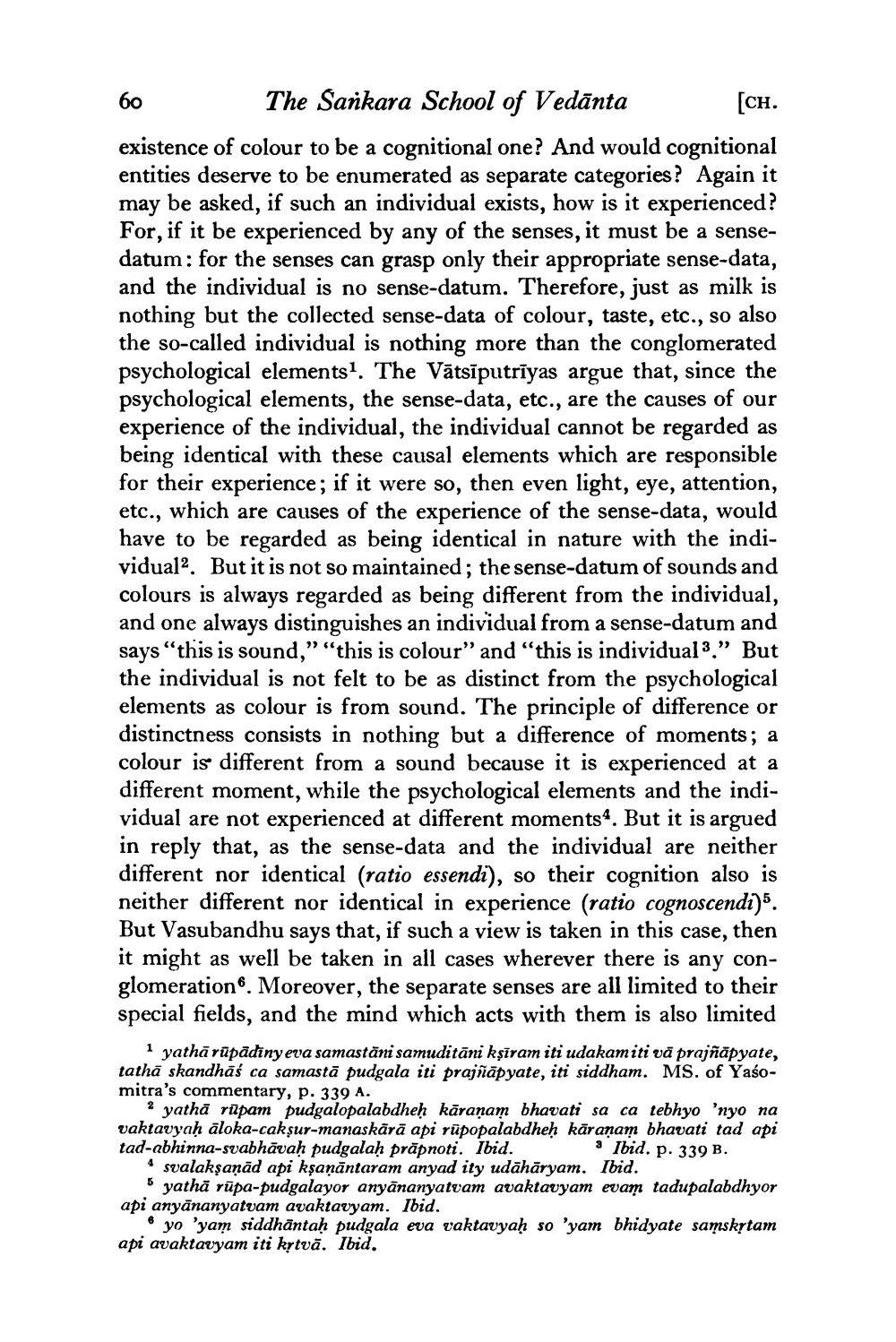________________
60
The Sankara School of Vedānta [CH. existence of colour to be a cognitional one? And would cognitional entities deserve to be enumerated as separate categories? Again it may be asked, if such an individual exists, how is it experienced? For, if it be experienced by any of the senses, it must be a sensedatum: for the senses can grasp only their appropriate sense-data, and the individual is no sense-datum. Therefore, just as milk is nothing but the collected sense-data of colour, taste, etc., so also the so-called individual is nothing more than the conglomerated psychological elements. The Vātsīputriyas argue that, since the psychological elements, the sense-data, etc., are the causes of our experience of the individual, the individual cannot be regarded as being identical with these causal elements which are responsible for their experience; if it were so, then even light, eye, attention, etc., which are causes of the experience of the sense-data, would have to be regarded as being identical in nature with the individuals. But it is not so maintained; the sense-datum of sounds and colours is always regarded as being different from the individual, and one always distinguishes an individual from a sense-datum and says "this is sound," "this is colour" and "this is individual 3.” But the individual is not felt to be as distinct from the psychological elements as colour is from sound. The principle of difference or distinctness consists in nothing but a difference of moments; a colour is different from a sound because it is experienced at a different moment, while the psychological elements and the individual are not experienced at different moments. But it is argued in reply that, as the sense-data and the individual are neither different nor identical (ratio essendi), so their cognition also is neither different nor identical in experience (ratio cognoscendi)5. But Vasubandhu says that, if such a view is taken in this case, then it might as well be taken in all cases wherever there is any conglomeration. Moreover, the separate senses are all limited to their special fields, and the mind which acts with them is also limited
1 yathā rūpādiny eva samastāni samuditāni kşīram iti udakamiti vā prajñāpyate, tathā skandhāś ca samastā pudgala iti prajñāpyate, iti siddham. MS. of Yasomitra's commentary, p. 339 A.
2 yathā rūpam pudgalopalabdheh kāraṇam bhavati sa ca tebhyo 'nyo na vaktavyaḥ aloka-cakşur-manaskārā api rūpopalabdheḥ kāraṇam bhavati tad api tad-abhinna-svabhāvaḥ pudgalah prāpnoti. Ibid.
3 Ibid. p. 339 B. svalakşanād api kşaņāntaram anyad ity udāhāryam. Ibid.
yathā rūpa-pudgalayor anyānanyatvam avaktauyam evam tadupalabdhyor api anyānanyatvam avaktavyam. Ibid.
yo 'yam siddhāntah pudgala eva vaktavyaḥ so 'yam bhidyate samskrtam api avaktavyam iti krtvā. Ibid.




